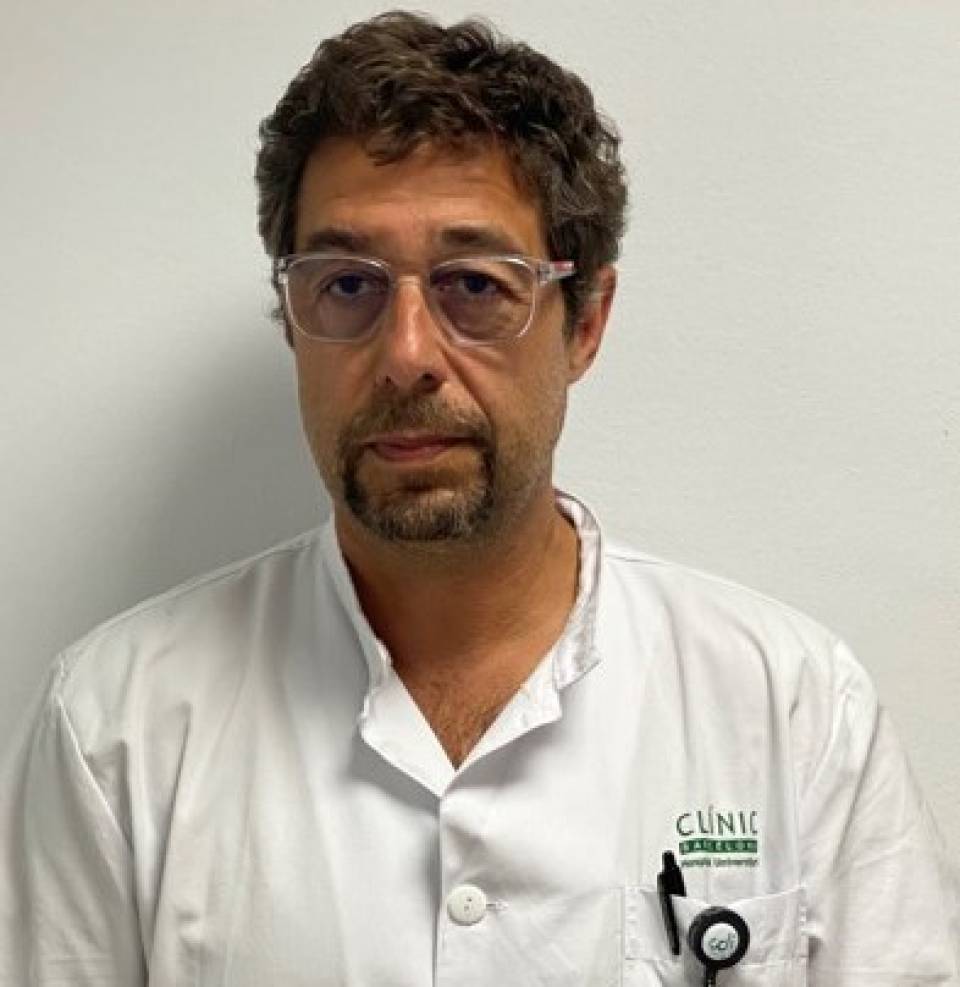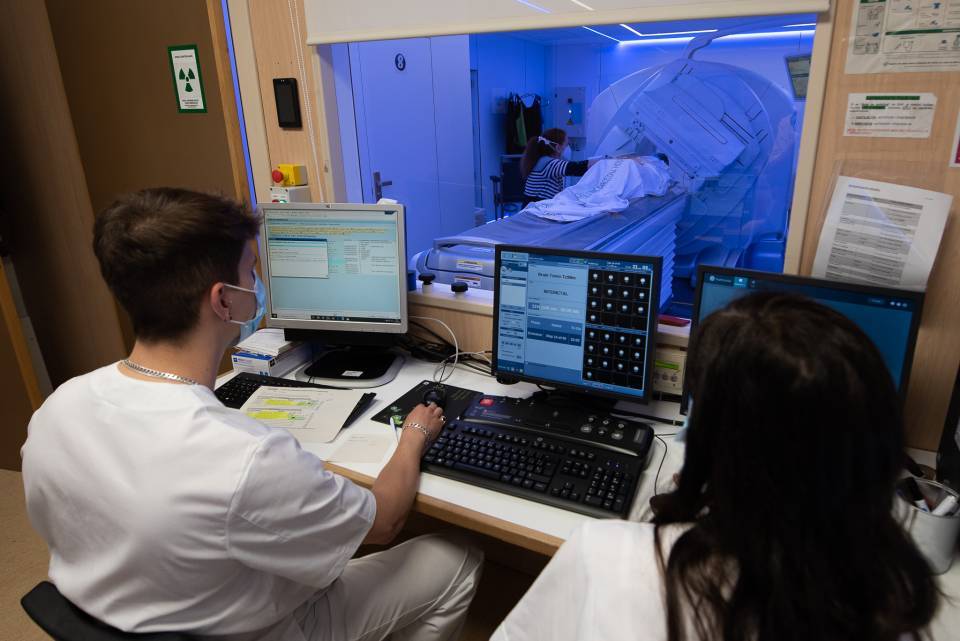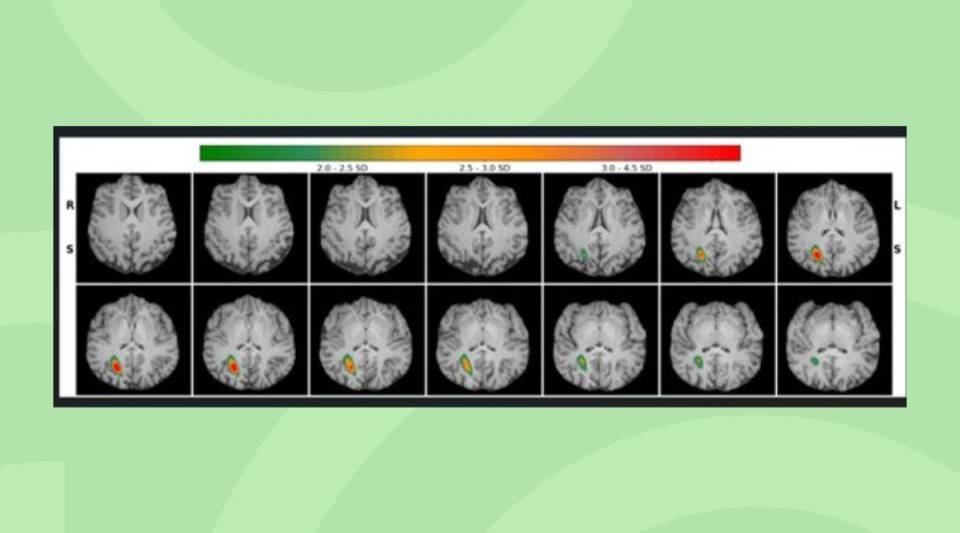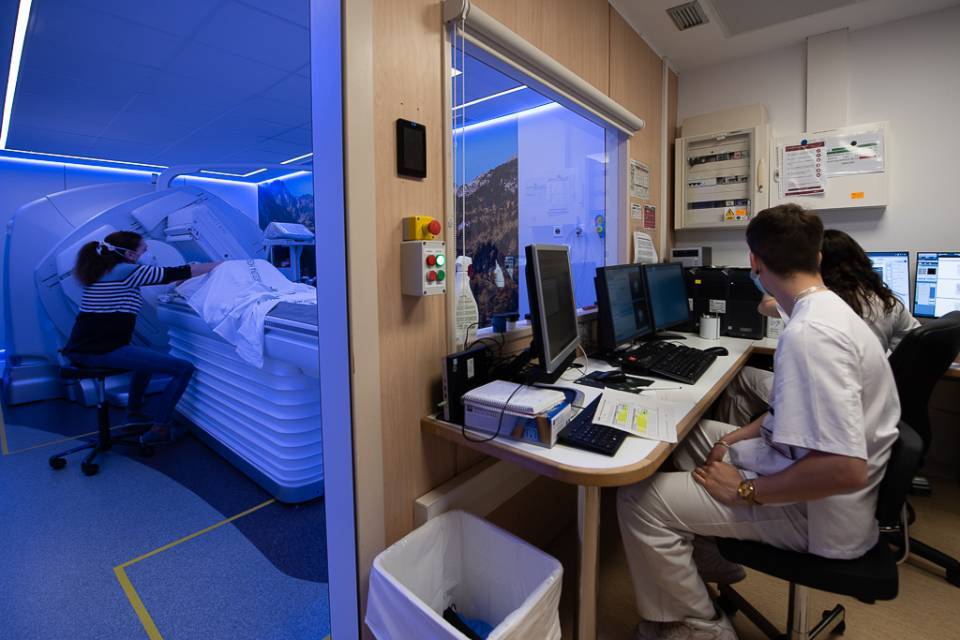18 December 2025
What is Nuclear Medicine?
Nuclear medicine is a medical speciality that includes different diagnostic tests or treatments based on the administration of radioactive substances called radiopharmaceuticals or radiotracers. These substances travel to the organ or tissue to be studied and emit radioactive particles as they break down. These can either be detected by a special camera to create an image of the radiopharmaceutical’s distribution throughout the body (for diagnosis) or irradiated in the desired area (for treatment).
The tests provide unique information, which cannot be obtained from other diagnostic imaging procedures, and offer the possibility of identifying diseases in their early stages. There are many types of nuclear medicine diagnostic tests; examples are Scintigraphy and Positron Emission Tomography (PET).
When is it necessary to have a Nuclear Medicine test?
Nuclear medicine techniques are used to diagnose a wide variety of diseases, such as cancer, heart disease, thyroid abnormalities and bone fractures, among others. They are used for treatment; to explore the functioning of different organs, tissues or bones; to describe physiological processes in the body; or to capture molecular changes in real time.
How should I prepare for the procedure?
Preparation for a nuclear medicine test depends on the specific type of examination and the medical condition being evaluated. However, some general guidelines are:
- Inform the doctor about any medical condition, allergy you have or medication you are taking, especially if you have diabetes.
- Wear comfortable clothing, preferably without metal zips or buttons, as they can interfere with the image. All metallic objects, such as jewellery, watches or coins, must be removed.
- Drink plenty of fluids before and after the test, as this helps clear the radiopharmaceutical from your system more quickly.
- For some tests, you need to fast beforehand. The instructions given in the test notification must be followed.
- Avoid caffeine and nicotine (in cardiology tests) or intense exercise (in FDG PET tests) for at least 24 hours before the exam, as they may affect the results.
- If you are breast-feeding, pregnant or suspect you may be pregnant, inform your doctor or nuclear medicine nurse beforehand, as some types of nuclear medicine imaging may not be recommended during pregnancy or breastfeeding.
- Arrive early for the appointment and leave enough time for any additional paperwork that may be necessary.
- You may have to stay in the imaging centre after injection, to give time for absorption of the radiopharmaceutical and for taking the images at the optimal time.
- Close contact with pregnant women or children must be avoided for as long as indicated by the nuclear medicine nursing staff.
Specific preparations can be consulted in the description of the different tests: PET and Scintigraphy.
How is it performed?
Nuclear medicine procedures are non-invasive and painless, with the exception of some intravenous radiopharmaceutical injections.
Depending on the type of examination, radiopharmaceuticals can be injected, inhaled or ingested orally, whereupon they accumulate in the organ or area to be examined. They emit a small amount of radiation that is detected by a special gamma camera or PET-CT tomograph. This signal is processed by a computer which can form detailed images of the function of organs and tissues. The specific steps may vary depending on the type of radiopharmaceutical and medical indication, but in general they are:
- The radiopharmaceutical is administered to the patient.
- The patient waits for the time indicated by the nursing staff so that the radiopharmaceutical is distributed throughout the body.
- After the waiting period, the patient is asked to lie still on a stretcher so the gamma camera or PET-CT tomograph can detect the radiation emitted by the radiopharmaceutical administered.
- Once the test is finished, the patient may be asked to wait while the images are reviewed by the nuclear medicine specialist, to check they can be used for assessment.
- The radiopharmaceutical administered will break down naturally after the examination, and will be eliminated from the body in the urine and faeces. The patient is advised to drink fluids to help clear the radiopharmaceutical from the system more quickly.
Specific preparations can be consulted in the description of the different tests: PET and Scintigraphy.
Where is the test performed?
The tests are performed in the nuclear medicine unit of medical centres.
Because nuclear medicine tests involve the use of radioactive materials, strict safety procedures are followed to minimise radiation exposure for patients, healthcare workers and the general public.
Who performs the test?
Nuclear medicine tests are performed by a team of nuclear medicine specialists. The team includes:
- A nuclear medicine specialist. Responsible for interpreting the examination results from the images obtained and determining the best treatment.
- Radiopharmacist. Responsible for radiopharmaceutical management.
- Nuclear medicine nursing staff. They assess the patient beforehand and administer the radiopharmaceutical based on the test indicated by the specialist.
- Diagnostic imaging technician. Responsible for operating the gamma camera or PET-CT tomograph and ensuring patient safety during the test.
- Biomedical engineer. Responsible for creating and supervising the image acquisition, reconstruction and processing features.
- Radiophysicist. A specialist who ensures the gamma camera or PET-CT tomograph works properly and that the radiation dose administered to the patient is safe and adequate.
All team members are trained professionals who work together to ensure the examination is performed safely and accurately and that the patient receives the best care possible.
How long does the test last?
The time taken for the nuclear medicine test varies according to the type performed. It can last from 20 minutes to several hours and may be performed over several days.
You should arrive on time for your appointment and follow the preparation instructions provided by your healthcare team to ensure the examination is performed efficiently and accurately.
What will I feel during the test?
Most patients do not experience any discomfort during a nuclear medicine test. However, some patients may experience some sensations which may include:
- Discomfort from the injection. The patient may feel a little discomfort or pain at the injection site.
- Heat or cold. Patients may feel a sensation of warmth or cold as the radiopharmaceutical is absorbed.
- Nausea. Some patients may experience mild nausea or a metallic taste in the mouth as a side effect of the radiopharmaceutical.
- Need to urinate. Patients may experience the need to urinate more often, as the radiopharmaceutical is removed from the body.
- Claustrophobia. Because they have to remain still in a confined space during imaging, some patients can feel claustrophobic or anxious.
You should inform a healthcare team member if you experience any discomfort or side effects during the scan. Staff can provide additional information and support to help make the scan as comfortable as possible.
What are possible complications?
Nuclear medicine tests are considered to be safe, non-invasive imaging techniques. However, there are potential complications associated with the use of radiopharmaceuticals:
- Allergic reaction. In very rare cases, patients may experience an allergic reaction to the radiopharmaceutical injection, causing symptoms such as hives or itching. If iodinated contrast is administered, allergic reactions may appear, much as they might if a CT scan is performed.
- Radiation exposure. The dose administered in a nuclear medicine procedure is very low and the risk of long-term side effects is generally low, so it does not interfere with normal life.
- Pregnancy and lactation. Pregnant or breastfeeding women should inform their doctor before undergoing a nuclear medicine test to minimise the radiation received by the foetus or infant.
You should discuss any potential risks or concerns with the specialist before undergoing a nuclear medicine test. The professional will be able to provide additional information and help resolve any questions about the procedure.
Related contents
Substantiated information by:

Published: 20 February 2018
Updated: 16 April 2024
Subscribe
Receive the latest updates related to this content.
Thank you for subscribing!
If this is the first time you subscribe you will receive a confirmation email, check your inbox


